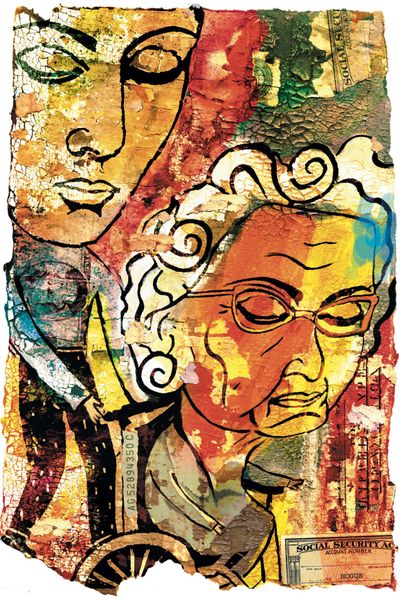Exercise, diet help thwart Alzheimer’s

With the passing of each month I become more convinced that the key to preventing Alzheimer’s disease is physical exercise and a Mediterranean diet with lots of extra virgin olive oil.
The Finnish Geriatric Intervention Study to Prevent Cognitive Impairment and Disability study, presented at the International Alzheimer’s Association Conference in Copenhagen, followed 1,200 older people in Finland for two years. Half received regular health advice while the other half had a more intensive regime of physical training involving muscle strengthening and aerobic exercise, a Mediterranean diet, computer-based memory training and social activity.
After two years, the group that experienced multiple lifestyle changes showed much improved cognition, compared to the group that received only education.
Scientists at Stanford University launched an interesting study, based on research in an animal model that showed injecting the blood of a young animal into an older animal has a rejuvenating effect and leads to the growth of new nerve cells. They will transfuse blood from younger people into patients who have Alzheimer’s disease to see if it will improve memory.
Basic science holds new promise for therapies that one day might treat Alzheimer’s disease.
Scientists, including the medical research group at St. Louis University, have shown that an antisense compound can slow down brain damage in an animal model of Alzheimer’s disease. Antisense, a strand of molecules that bind to messenger RNA, triggers events that prevent excess production of amyloid precursor protein and other molecular compounds implicated in the development of Alzheimer’s disease.
Mounting evidence also suggests that stabilizing mitochondria (the cell’s powerhouse) will slow damage to the brain. Our studies have shown that metformin, a common drug for diabetes, does this in animals, which makes us hopeful it could work in humans. Finally numerous animal studies have shown that stem cells derived from umbilical cord blood or our own fat cells can help regenerate damaged brain tissue.
After decades of failure to produce really useful drugs to treat Alzheimer’s disease, I believe we are on the verge of a new future. Of course, all new medications must undergo a rigorous testing process in humans before they are approved for use by people, and that, unfortunately, is years away. So until new treatments are available, remember exercise can keep your brain healthy.